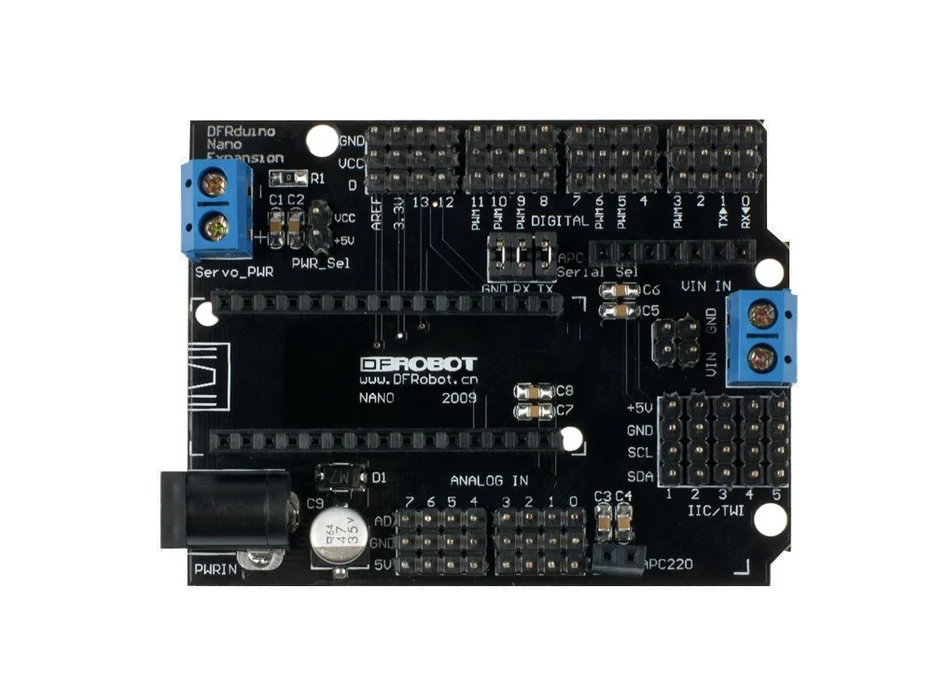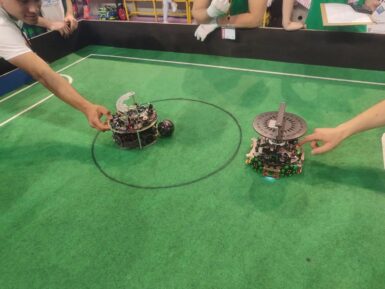
Gravity: Nano I/O Shield
Sold outExpand your Arduino board with the sensor you prefer! Easy and straightforward connectivity with every Gravity sensor.
Overview
The Nano I/O Sensor Shield is an expansion board for the Arduino Nano. There are several different options for power input. The form factor of the Nano I/O Shield board is the same as the Arduino UNO/Arduino Leonardo. In addition, the sensor shield adopts Gravity interface that each pinout includes 5V and GND pins for easy connection to Gravity sensors or servos. To the best compatibility, the shield supports jumper wires for rapid prototyping.
This unit comes fully assembled. The board also has a space specifically for bluetooth module and ACP220. Several I2C pins are also expanded.
The shield has independent power supply to provide extra power for servo and other sensors.
Tech specs
- Power supply: +5 V
- Size: 69x54mm (2.7 x 2.1 in)
Get Inspired

Learn to set up an Arduino Nano RP2040 Connect to use MicroPython.

Team Ikaro is a vibrant group of high school students from the Pacinotti Archimede Institute in Rome, sharing a strong passion for electronics and turning heads in the world of robotics! Specializing in Soccer Lightweight games (where robot-soccer players compete to score goals on a miniature field), they clinched the first place at the Romecup 2024 and won Italy’s national Robocup in Verbania earlier this year – earning the right to compete in the world championships in Eindhoven, where they placed third in the SuperTeam competition. The brains behind the bots Utilizing the versatile Arduino Nano RP2040 Connect, the team has crafted highly efficient robots that feature ultrasound sensors, PCB boards, a camera, four motors, a solenoid kicker and omni-directional wheels, all meticulously assembled in the school’s FabLab. Mentored by professor Paolo Torda, Team Ikaro exemplifies the spirit of innovation and teamwork bringing together three talented students: Francesco D’Angelo, the team leader, focuses on system design and mechanics; Flavio Crocicchia, the software developer, ensures the robots’ brains are as sharp as possible; Lorenzo Addario specializes in camera software, making sure the robots can “see” and react swiftly on the field. Their combined efforts have led to a seamless integration of hardware and software, and established a foundation of passion and ambition for future success in their careers. Future goals After their first taste of global competition, Team Ikaro is determined to continue refining their robots, leveraging every bit of knowledge and experience they gain – whether in the classroom, lab, or live challenges. At Arduino, we are proud to sponsor such brilliant young minds and look forward to seeing what they will accomplish next!





